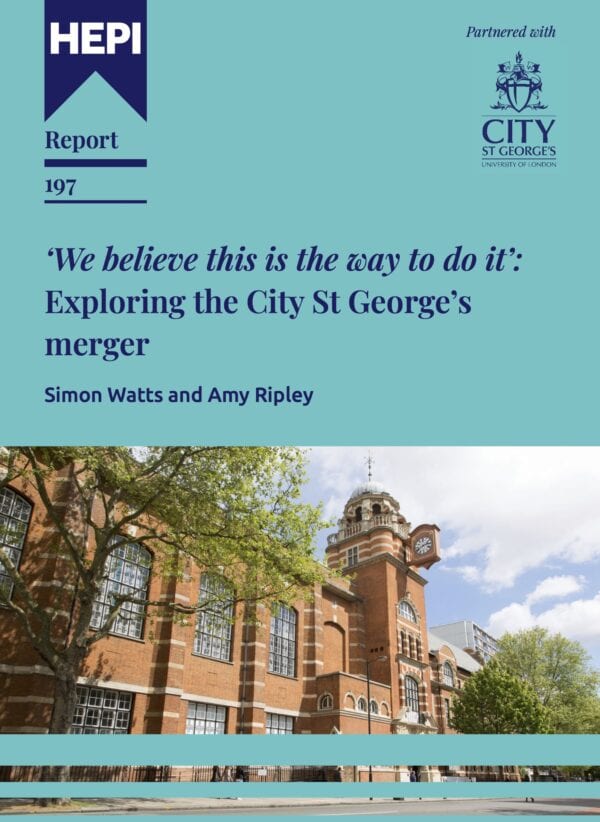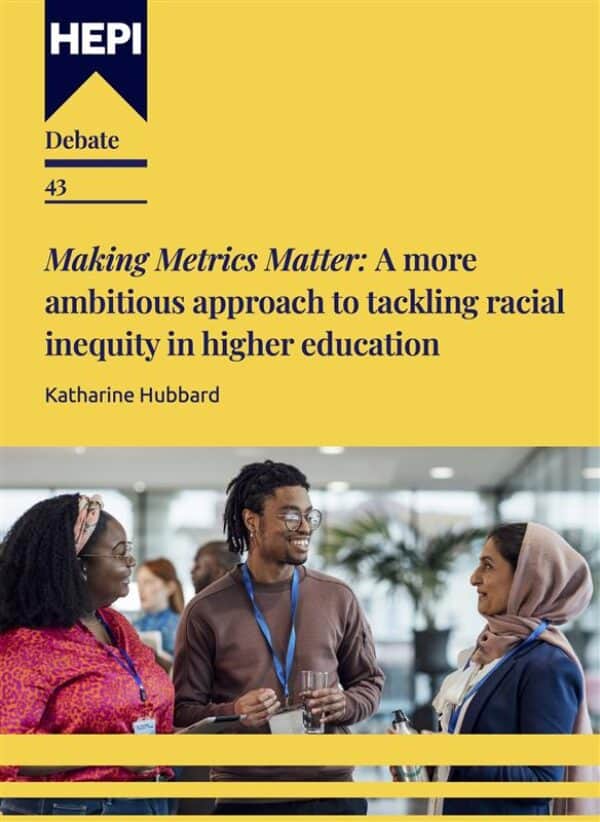Green skills, graduate competencies, and championing subject diversity – it’s time to join up some agendas
This HEPI blog was kindly authored by Rebecca Collins, Director, Sustainability and Environment Research and Knowledge Exchange Institute, University of Chester and Santiago Poeira Ribeiro, student in Natural Sciences (Physics), University of Chester.
UK universities are currently grappling with a perfect storm of disruptors: financial challenges, ambivalence from national policymakers, and, increasingly, from prospective students as they question what a university education really offers them. At the same time, the employment landscape is weathering its own storms, including those driven by accelerating technological change (particularly AI), concerns about skills deficits, geopolitical turbulence, and equivocation about whether or not this net zero business is here to stay. UK Government response to these challenges has most recently taken the form of Skills England’s analysis of the skills requirement across ten priority sectors and the promise of a new industrial strategy from 2026-27 that connects these requirements to reforms of the higher education system.
It is in this context that a strangely paradoxical scenario is playing out. On the one hand are claims that the UK does not have the necessary skills for a ‘green transition’ to net zero – what are increasingly being described as ‘green skills’. (Notwithstanding the current national political ambivalence about net zero, most sectors of the UK economy have long since recognised the necessary direction of travel and know they need an appropriately knowledgeable and skilled workforce to accelerate action.) On the other is a higher education sector beset by the contraction or closure of subject areas perceived by some political and industrial leaders as insufficiently relevant to our collective economic future, ‘green’ or otherwise. However, for many years now, UK higher education has cultivated students’ green skills through its commitment to education for sustainable development (EfSD), widely recognised as essential knowledge for graduates entering the workforce. Indeed, climate literacy training is now often embedded in university curricula, as well as becoming increasingly normalised as a core, if not mandatory, training requirement across a range of industry sectors. Whilst what EfSD looks like at different universities varies, the majority of institutions demonstrate some degree of engagement with this agenda across all subject areas, with some making it a flagship institutional policy.
UK higher education thus seems to be quite good already at cultivating green skills for graduates, and across a wide range of subject areas. How, then, does this map onto the very varied definitions of green skills that have emerged from different sectors? The proliferation of reports concerned with this topic has not (yet) resulted in a clear, unified definition. Rather, this tends to be determined by who is doing the defining. Considering the different definitions and concepts prioritised by different institutions, we propose that these intersecting concerns can ultimately be distilled into three main types of green skill:
- Technical skills: particularly those needed to accelerate decarbonisation; concentration of this need in industries such as manufacturing, transportation, utilities and infrastructure.
- Green-enabling skills: otherwise known as soft or transferable skills, including systems thinking, communication, collaboration, critical thinking, adaptability.
- Values-based skills: such as environmental awareness, climate justice, democratic engagement, cultural sensitivity.
Whilst definition 1 skews towards STEM subjects (as well as forms of technical expertise developed through other forms of learning, such as apprenticeships or vocational training), definitions 2 and 3 are within the purview of many other subjects commonly studied at undergraduate level, particularly within the arts, humanities and social sciences.
It is a timely moment to be reflecting on the relationship between how skills deficit narratives are framed by some corners of industry and government, and how universities position their offer in response. It feels like every academic in UK higher education has a story about recent, current or imminent institution-wide curriculum transformation. Whilst the rationales presented for these varies, one of the stronger narratives concerns ensuring students develop competencies that are fit for the future, respond directly to regional, national or global skills needs, and give students the vocabulary to articulate how the former meets the latter. As such, curriculum transformation presents an opportunity to think about how universities frame their offer, not just to prospective students but equally to the sectors those students might move into as skilled graduates.
Further, whilst driven by a range of factors, curriculum transformation presents the opportunity to articulate the role of all subjects studied in higher education, and all types of higher education providers, to contribute to the skills needed for an economy resilient to the socio-political shocks that will inevitably be invoked by environmental crises. There is a role for university leaders to be much bolder in articulating the value of all subjects – STEM and the arts, humanities, social sciences, and everything in between – and the green skills they cultivate. Now is the moment to consider how the promise of higher education might speak to or work with other agendas concerned with ensuring environmentally and socially sustainable and inclusive economies, regionally, nationally and globally. University leaders have a central role to play in advocating for a national higher education system where diversity – of student, skill and subject area – is not just celebrated as a buzzword but is demonstrated to be an essential part of a thriving, resilient and sustainable society.







Comments
Sandra Booth says:
This is what the Design sector working with HE are doing https://www.designcouncil.org.uk/our-work/skills-for-planet/
Reply
Add comment